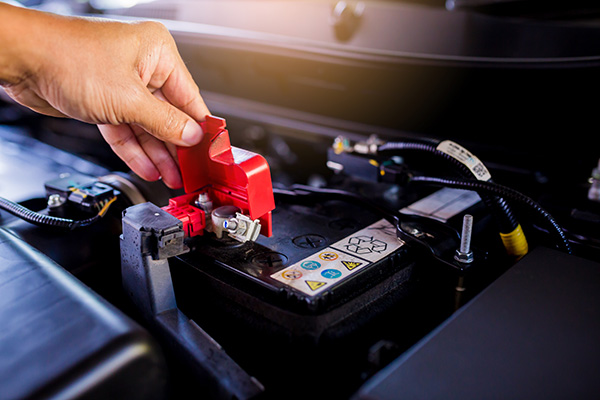
Did you just turn the key, only to be met with silence or a dreaded clicking sound? When your car doesn’t start, a dead battery is often the culprit. Your car’s battery is powering everything from the engine to the radio. But like any component, it requires care and attention to keep it in good working order. So, how can you extend your car battery’s life and avoid getting stranded?
The Basics of Car Batteries
Before we jump into the maintenance tips, knowing what your car battery actually does is helpful. Your car’s battery is responsible for providing the electrical energy needed to start the engine. Once the engine is running, the alternator takes over to recharge the battery and power the electrical systems. However, batteries don’t last forever. On average, a car battery has a lifespan of 3 to 5 years, depending on driving habits, weather conditions, and maintenance. The good news is that with proper care, you can maximize its lifespan and performance.
Keep It Clean and Corrosion-Free
One of the simplest ways to maintain your car’s battery is by keeping it clean. Over time, corrosion can build up on the battery terminals, which can interfere with the connection and lead to starting problems. You might notice a white, powdery substance on the terminals, which is a sign of corrosion. If left untreated, it can reduce the battery’s efficiency or even prevent your car from starting.
To clean the terminals, turn off your car and disconnect the battery cables (start with the negative cable). Use a mixture of baking soda and water with a toothbrush to scrub away any corrosion. Once clean, rinse with water and dry thoroughly. Applying a thin layer of petroleum jelly can help prevent future corrosion and keep the terminals in good shape.
Regularly Check the Battery’s Charge
Keeping an eye on your battery’s charge level can save you from unexpected breakdowns. Modern cars often have a built-in battery monitor, but you can also use a handheld voltmeter to check the charge. A fully charged battery should read around 12.6 volts or higher when the engine is off. If the reading falls below 12 volts, it might be time to recharge or replace the battery.
Cold weather can drain your battery faster than you think. That’s why it’s crucial to check your battery’s charge, especially before the winter months set in. If you notice your headlights dimming or your engine cranking slower than usual, these could be early signs of a weak battery.
Limit Short Trips
Did you know that frequent short trips can actually drain your car battery? Each time you start your car, it uses a significant amount of power from the battery. If you’re only driving for a few minutes, the alternator doesn’t have enough time to recharge the battery fully. Over time, this can lead to a weakened battery.
Try to combine errands or take a longer drive every once in a while to give your battery a chance to recharge properly. This is particularly important if your car is mainly used for short commutes. Allowing your vehicle to run for at least 20 minutes can help keep the battery in good condition.
Avoid Leaving Electronics On When the Engine is Off
We’re all guilty of it—leaving the headlights, interior lights, or radio on without realizing it. This can quickly drain your battery, especially if your car is parked for an extended period. Make it a habit to double-check that all lights and accessories are turned off before exiting the vehicle. If your car has a feature that automatically turns off the lights, you’re in luck, but it’s still good practice to be mindful.
Another habit to avoid is using your car’s electronics while the engine is off. Charging your phone, listening to music, or keeping the air conditioning on while the car isn’t running puts unnecessary strain on the battery.
Keep Your Battery Secure
A loose battery can lead to vibrations that can cause internal damage and reduce the lifespan of your battery. Make sure your battery is securely mounted in its tray. If it’s loose, it could also damage other parts of your car. Regularly check that the battery is held firmly in place, especially if you frequently drive on rough roads.
Watch Out for Warning Signs
Your car often gives you subtle hints when something is wrong. Pay attention to signs like dim headlights, a sluggish start, or warning lights on your dashboard. These could be indicators that your battery is on its last legs. If you notice any of these symptoms, it’s best to get your battery tested by a professional. Catching the problem early can save you from being stranded with a dead battery.
Worried about your car’s battery? Swing by Foreign Auto Services for a comprehensive check-up. Whether it’s cleaning, testing, or replacing, we’ve got you covered. Let’s keep your car starting strong every time!